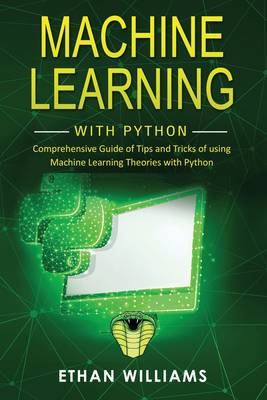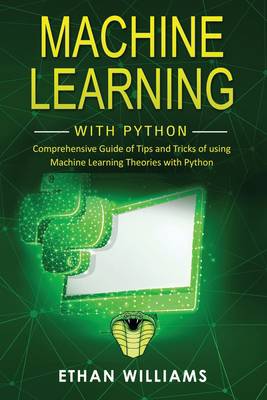
- Afhalen na 1 uur in een winkel met voorraad
- Gratis thuislevering in België vanaf € 30
- Ruim aanbod met 7 miljoen producten
- Afhalen na 1 uur in een winkel met voorraad
- Gratis thuislevering in België vanaf € 30
- Ruim aanbod met 7 miljoen producten
Zoeken
Machine Learning with Python
Comprehensive Guide of Tips and Tricks of using Machine Learning Theories with Python
Ethan Williams
€ 34,95
+ 69 punten
Omschrijving
Book description: Machine learning is a branch of artificial intelligence that designs algorithms that improve their performance based on empirical data. Machine learning is one of the most active and exciting fields of computer science today, mainly because of its many application options ranging from pattern recognition and in-depth data analysis to robotics, computational vision, bioinformatics, and computational linguistics. Machine learning is above all a discipline that can contribute to many domains and has very challenging applications. This is the area where most publications in academia are concerned with artificial intelligence, and all major companies, such as Google, Facebook or Microsoft, apply machine learning methods in their applications. This book covers the theory, principles and tricks to machine learning and provides an overview of its applications in Python.In the field of data science, it comes quite natural that you should learn Python. If you're wondering why Python is the answer, the answer is that there are already ready packages (statistical and numerical) for analyzing data such as PyBrain, NumPy, and MySQL. Machine learning integrates computers and statistics that allow computers to learn new tasks. There are Python modules - such as Scikit-learn, Tensorflow, and Theano - that support machine learning so that you can do cool things such as spam detection and fingerprint identification. So these are some of the concepts that you will master reading this book.At last, the best way to learn data science is to do it, and there is no alternative. We firmly believe that at the end of this book, you will be equipped with all the necessary skills that are required to embed a Python model into a real-life application. You'll be able to implement some useful skills, and tricks to help you overcome any obstacle. That is the ultimate goal behind designing the book, "Machine Learning with Python - Comprehensive Guide of Tips and Tricks of using Machine Learning Theories with Python." We truly believe that you will find this book a significant investment in your data research, which will make your learning experience fun and engaging
Specificaties
Betrokkenen
- Auteur(s):
- Uitgeverij:
Inhoud
- Aantal bladzijden:
- 198
- Taal:
- Engels
- Reeks:
- Reeksnummer:
- nr. 2
Eigenschappen
- Productcode (EAN):
- 9781676271857
- Verschijningsdatum:
- 16/12/2019
- Uitvoering:
- Paperback
- Formaat:
- Trade paperback (VS)
- Afmetingen:
- 152 mm x 229 mm
- Gewicht:
- 272 g

Alleen bij Standaard Boekhandel
+ 69 punten op je klantenkaart van Standaard Boekhandel
Beoordelingen
We publiceren alleen reviews die voldoen aan de voorwaarden voor reviews. Bekijk onze voorwaarden voor reviews.











